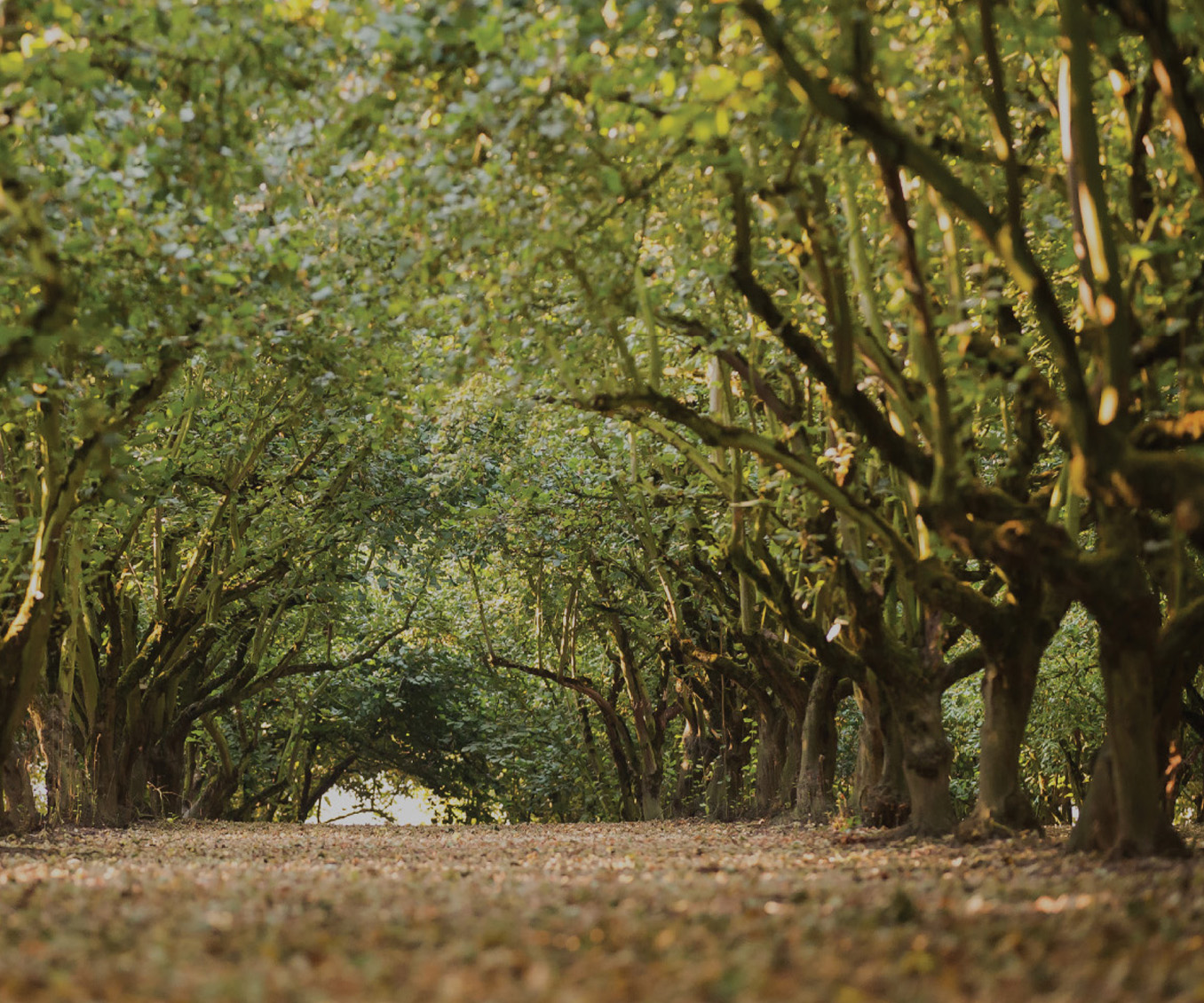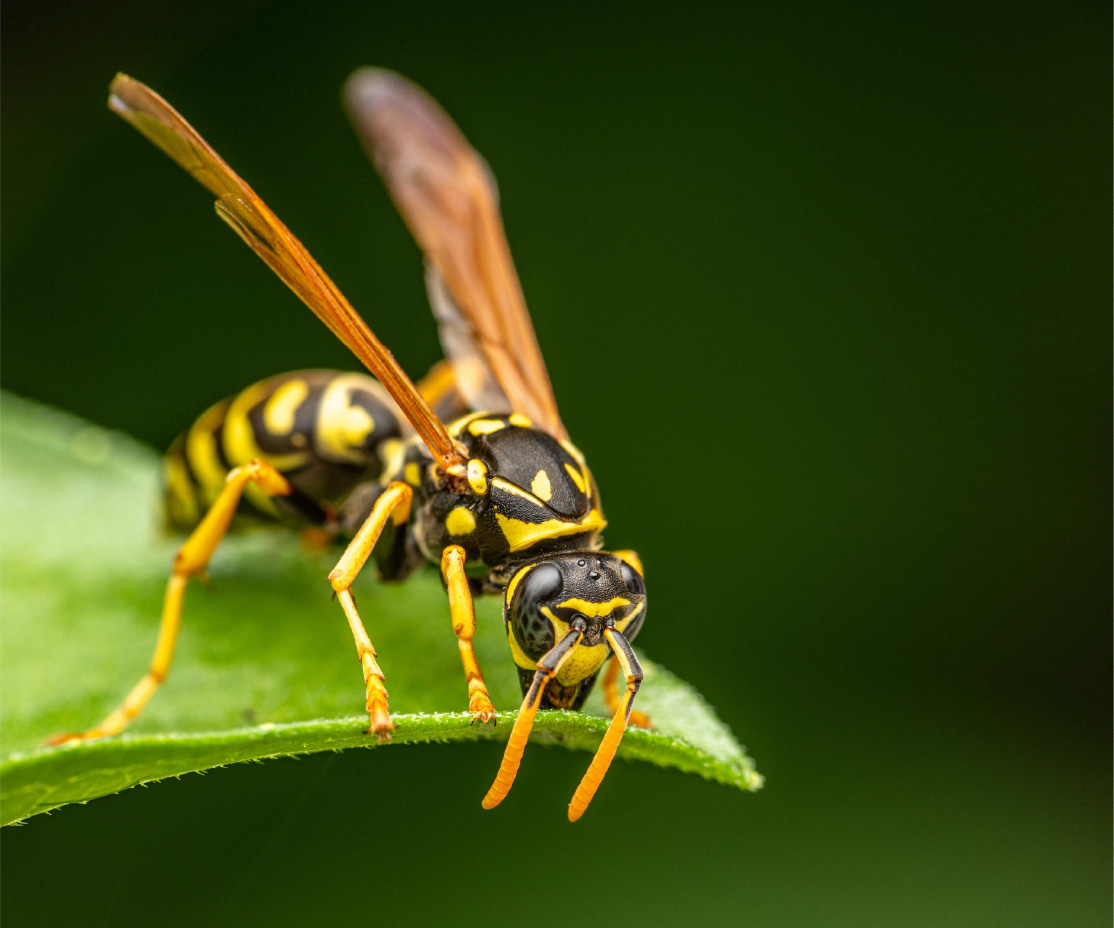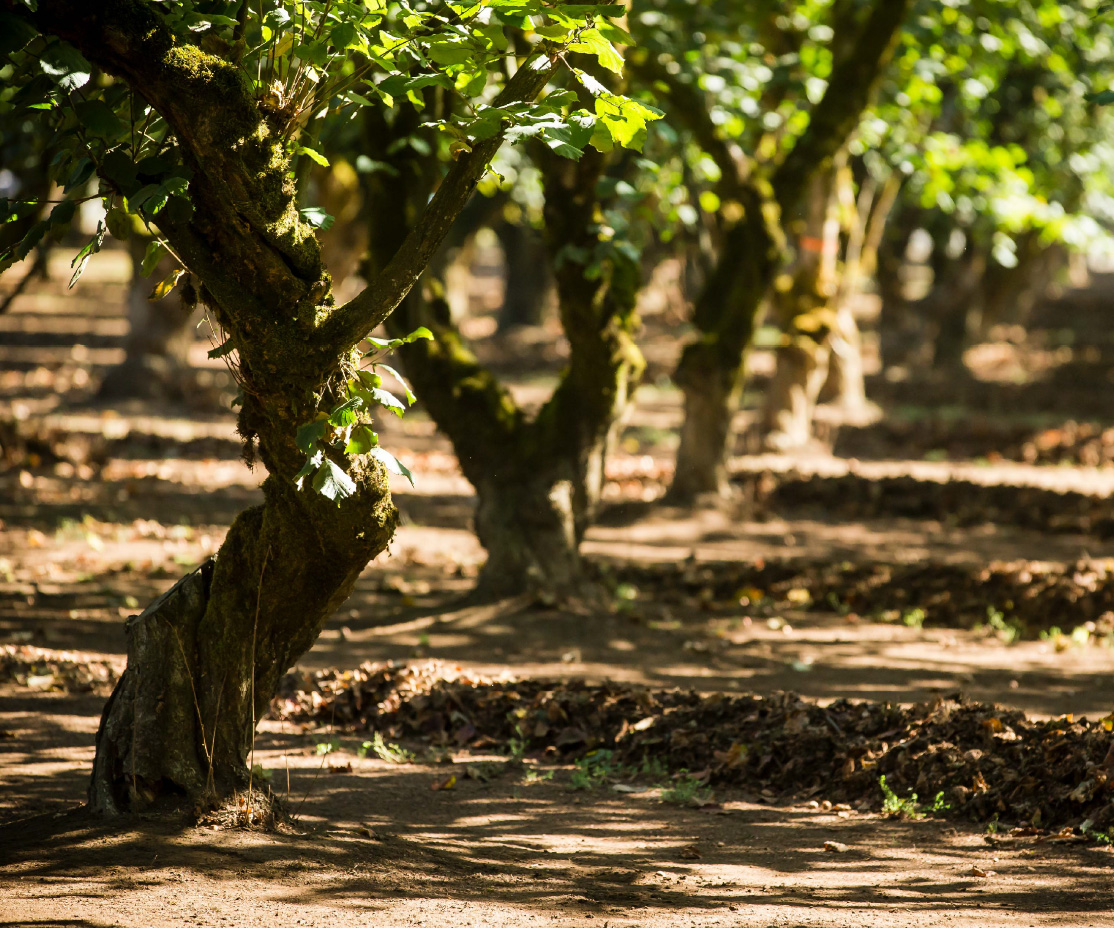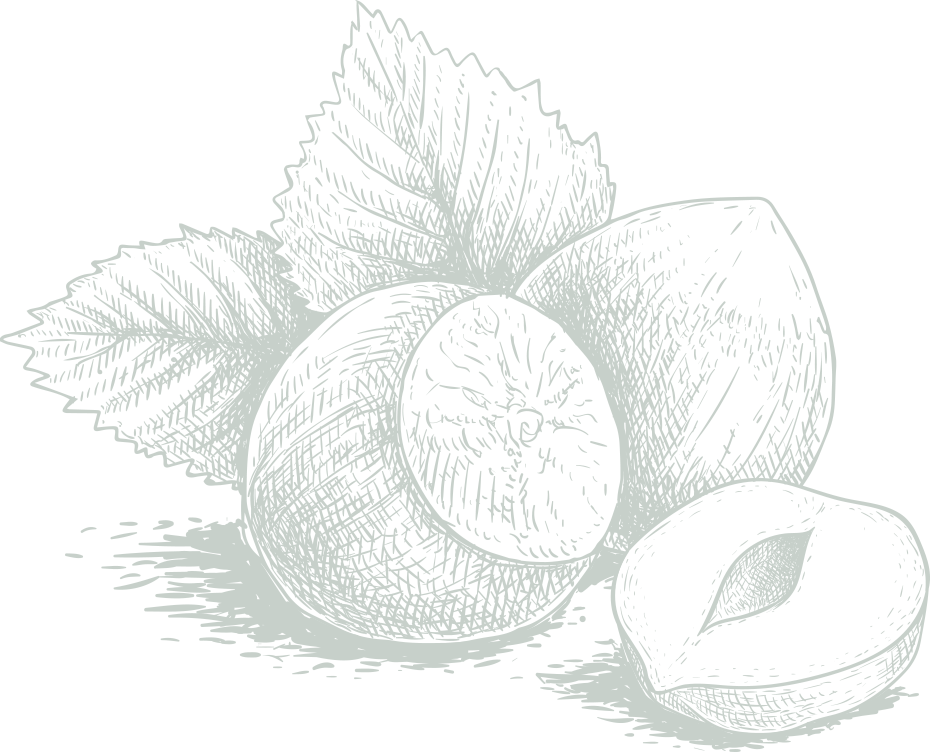We understand that long-term prosperity requires long-term planning and it starts with good stewardship of the land. All of our decisions— from water usage in crops to innovation in processing techniques— are guided by the ideal that we leave the land as good, or better, for this and future generations.

Sustainable From The Ground Up
Oregon Hazelnuts are a low-input crop.
According to Arbor Day Foundation, “Hazelnuts use less water and are drought resistant. Massive root systems allow perennial plants to avoid short term droughts that would adversely affect annual crops.” Thanks to the rich volcanic soil and bountiful rainfall in the Pacific Northwest, hazelnuts thrive in this unique climate. In fact, “once orchards are established, the hazelnut trees often need little to no irrigation,”

Innovations for The Future
Oregon hazelnut growers have supported a production research program since 1949 that continually evaluates hazelnut growing and handling practices, and encourages innovations. The Oregon hazelnut industry is behind a classic biological control success story that involved importing a wasp to control the aphid population, thus reducing the need for sprays.

Stewards of The Land
Maintaining the long-term viability of the orchard land is a priority for Oregon hazelnut growers. For instance, debris is left on the orchard floor after harvest to encourage earthworm populations and provide nutrients for the following year.

